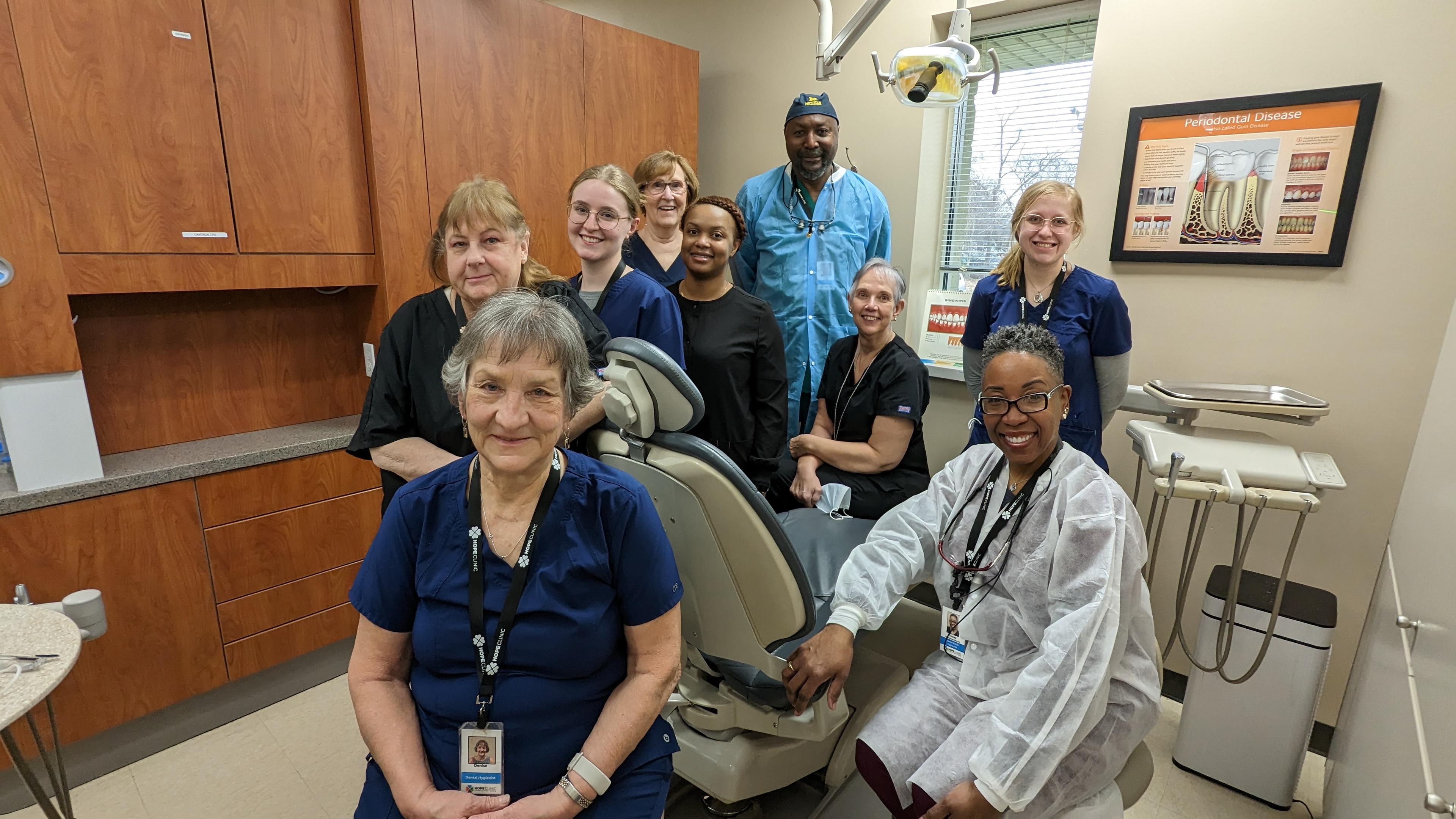U of M Study: Do Obese Patients Face Discrimination?
Julie Bitely
| 3 min read

As an obstetrician-gynecologist (OB-GYN), John Harris sees a wide variety of patients in his practice. His aim is to treat them all equally, no matter their race, ethnicity, social status, or size. When it comes to patients who are overweight or obese, he’s observed tension and a lack of clarity in the health care world about how to best serve a population with real medical needs that may or may not be directly tied to weight. Harris is studying patients’ perception of care as it relates to their weight. He’s interviewing overweight and obese patients undergoing colon surgery at the University of Michigan and he’s also surveying their health care providers. His research is being funded by the Blue Cross Blue Shield of Michigan Foundation. He’s hoping to find whether or not patients perceive a lesser level of care and how their doctors’ bias about overweight and obese patients might play into that. He already knows that obese patients are more likely to be hospitalized, more likely to have extended hospitalizations, and more likely to have post-surgical complications. To compound those facts, evidence shows many health care providers have explicit or latent bias toward patients with obesity. Many perceive them as lacking self-control, being non-compliant and tending to be lazy. Patients often have to contend with technical barriers to care in the way of accessing appropriate facilities, services and counseling with unique needs due to their body size. Perhaps as a result, patients often view their interactions with providers as demeaning, stress-inducing and ineffective. Harris said the unintended consequences of negative doctor bias and patient perception can degrade the relationship, leading to overall worse health outcomes. His long-term goal is to push for patient care that respects the individual and their current needs. “I think more about how the health care system can do a better job taking care of people no matter what size they are,” he said. Harris said doctors sometimes focus on weight when it isn’t even what the patient is seeking help for. He said that kind of thinking needs to change, noting that a patient who feels guilty, ashamed or pressured into dealing with their weight is unlikely to make real changes. He acknowledges that obesity does pose health challenges, but that a softer, more empathetic approach is needed when it comes to the doctor-patient relationship. In his practice, Harris focuses on talking about health, not hitting a certain weight target, which he considers an ineffective way to inspire change. “First, it’s always important that we counsel our patients in a way that’s effective and considerate about how to improve their health by trying to reduce weight or avoid weight gain,” he said. The Blue Cross Blue Shield of Michigan Foundation supports research and programs to improve the health of Michigan residents. No grant money comes from the premium payments of Blue Cross Blue Shield of Michigan members. To learn more about BCBSM Foundation grant programs, visit bcbsm.com/foundation. If you enjoyed this post, you might also like:
- Beyond the Card: Muskegon Residents Trade Volunteer Hours for Dental Treatment
- Beyond the Card: Cardiology Community Comes Together
- Healthy Kids: The Latest Research on Children and Obesity
Photo credit: Butz.2013





